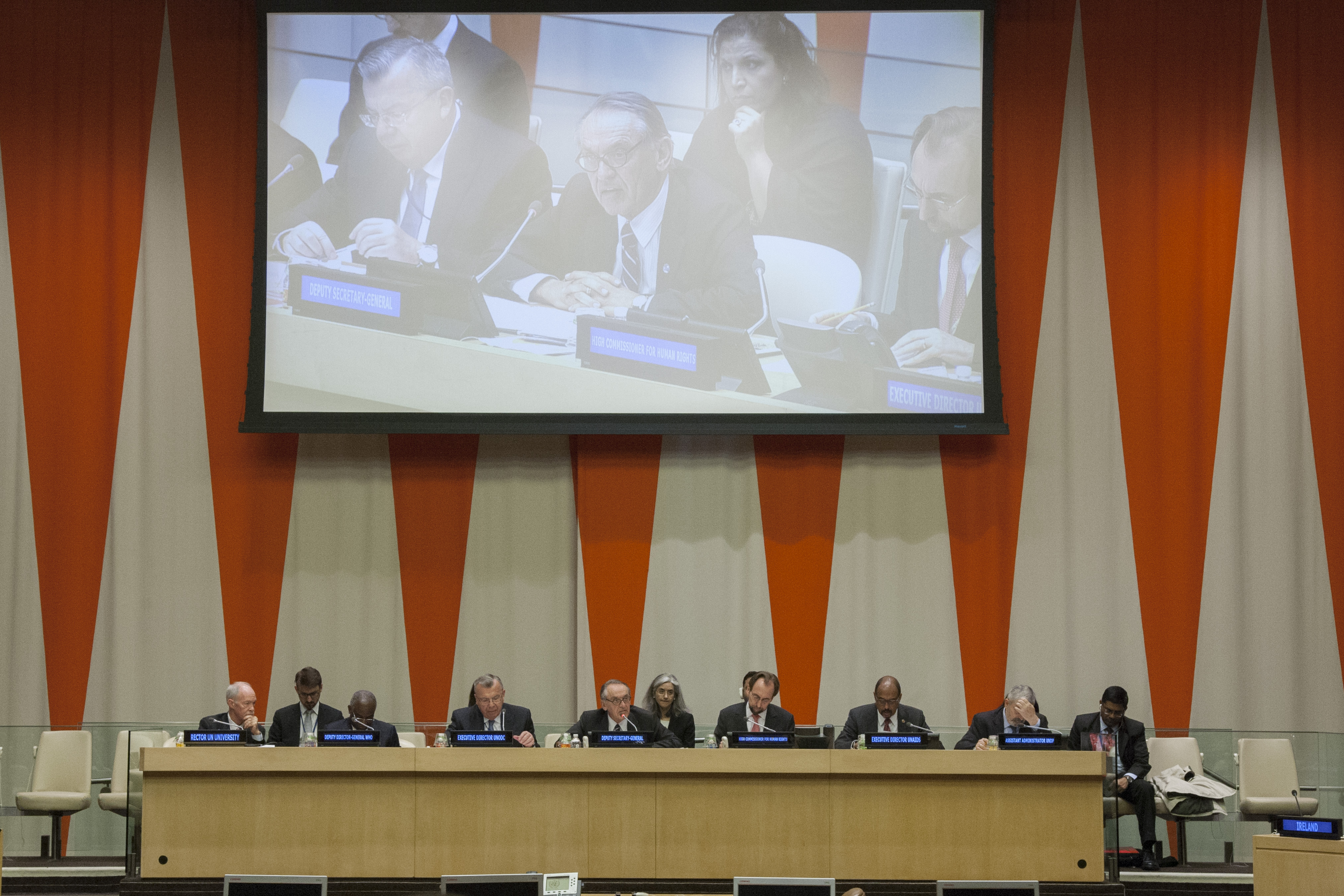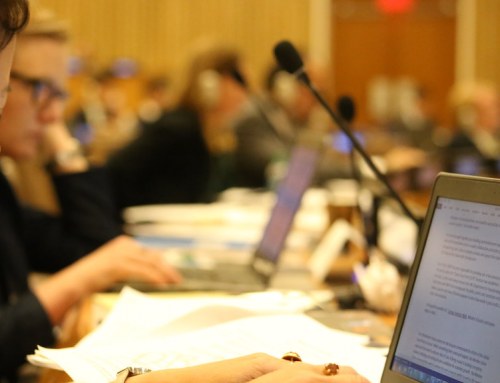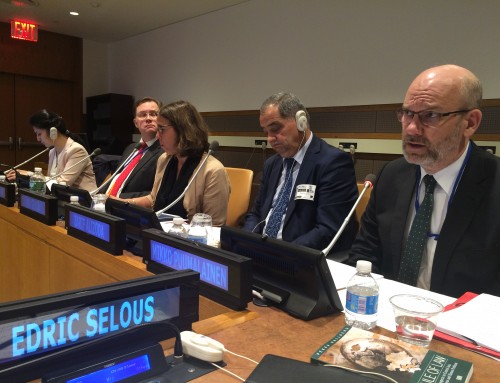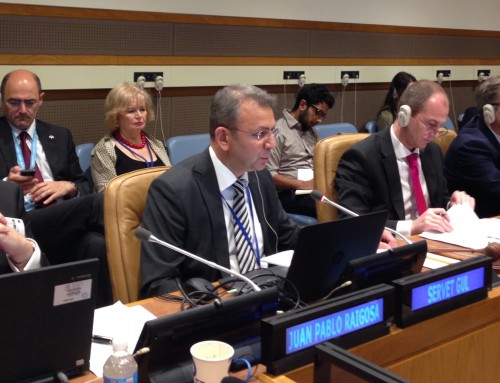UN Briefing on world drug problem – 20 Nov 2015
In the lead-up to the special session of the General Assembly on the world drug problem (UNGASS) to be held in New York in April 2016, the Deputy Secretary-General convened an informal briefing for Member States, to highlight the work of United Nations entities in this area. From the perspective of their respective mandates, UN entities have developed important work on the challenges and opportunities posed by the current drug control regime. The informal briefing intended to inform Member States of this work, in support of their discussions around the world drug problem.
The Deputy Secretary-General stressed the importance of developing an integrated approach towards the world drug problem that includes development, security, public safety, governance, public health and human rights. He suggested two essential guideposts for Member States in their work combatting the world drug problem. Firstly, better data collection and research as essential for evidence-based policy making and, secondly, to place human rights at the centre of decision-making.
The Executive Director of the United Nations Office on Drugs and Crime –UNODC, Yury Fedotov, mentioned some of the activities undertaken in the process towards UNGASS 2016, highlighting the role played by the Commission on Narcotic Drugs (CND). He emphasised that the purpose of the international drug control Conventions is to protect the health and welfare of humankind. Mr. Fedotov noted that the drug Conventions are flexible enough to deliver a balanced and comprehensive approach based on human rights and are focused on health. Mr. Fedotov also mentioned the need to connect the implementation of the Sustainable Development Goals to the UNGASS process, while at the same time reaffirming the importance of rule of law-based efforts to bring drug lords to justice.
The High Commissioner for Human Rights, Mr. Zeid Al Hussein, encouraged a shift of focus in tackling the world drug problem from an approach primarily based on law enforcement to one focused instead on the human rights of drug users. He advocated for a compassionate response to drugs, focused on health and well-being, and with full respect for dignity and rights. Mr. Zeid Al Hussein made reference to the importance of ensuring access to health care, of harm reduction programmes, and of ensuring access to controlled medicines for therapeutic purposes. He urged Member States to consider decriminalizing the use and possession of drugs for personal use, and to address the human rights consequences of law enforcement to tackle drug trafficking.
The Executive Director of UNAIDS, Mr. Michel Sidibé, also stressed the need to end punitive approaches towards the drug problem, urging that the focus should be on improving the health and welfare of mankind, as provided for by 1961 Single Convention on Narcotic Drugs. He noted that drug users are 30 times more likely to contract HIV than the general population, an issue that can be addressed through initiatives such as needle exchange programs. Such initiatives are an investment ensuring that drug users are no longer left behind.
The Deputy Director-General of the World Health Organization –WHO, Dr. Anarfi Asamoa-Baah, welcomed the growing consensus around the need to include public health in a more balanced approach to the world drug problem. Such an approach should be people-centred and involve the whole continuum of prevention, treatment, care, rehabilitation, and recovery. He also mentioned the need to treat drug addiction as a medical condition, the need to ensure access to controlled drugs for medical treatment, and the importance of taking into account the socio-economic and environmental determinants to health.
Magdy Martínez-Solimán Assistant Administrator of the United Nations Development Programme –UNDP, referred to the unintentional consequences of drug control policies and enforcement efforts for sustainable human development. He noted that the root causes of much of the world’s drug cultivation include poverty, the absence of economic opportunities, and inequality. He highlighted how drug policy intersects with the Sustainable Development Goals in areas such as poverty eradication, food security, health and wellbeing, gender equality, decent work and economic growth, reduced inequalities as well as peace, justice and strong institutions. He referred to the importance of considering additional metrics for drug related policies to measure their implications on people’s lives, human rights, or other elements of sustainable human development.
Dr. David Malone Rector of the United Nations University, presented some of the main findings of the recent report produced by UN University, What Comes After the War on Drugs?, which engaged 50 Member States, 16 UN agencies and 55 civil society organizations. The report cautions that flexibility in the implementation of the drug regime could risk leading to policy fragmentation. To address this risk, the report proposes some recommendations to implement an approach based both on national flexibility and agreed global principles. The recommendations address the areas of penal policy, health, development and human rights.
The full text of the statements made at the briefing can be found here: www.un.org/ruleoflaw/13763-2




